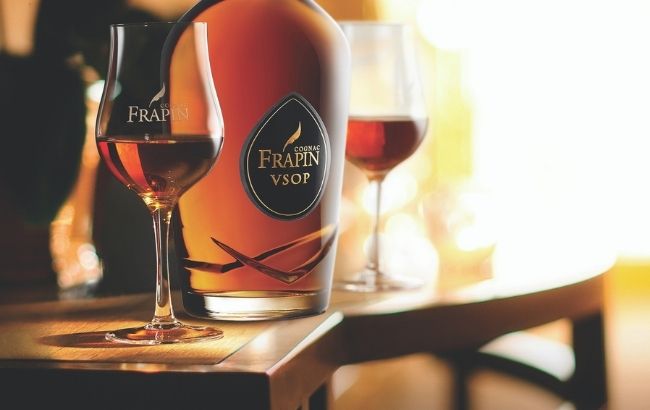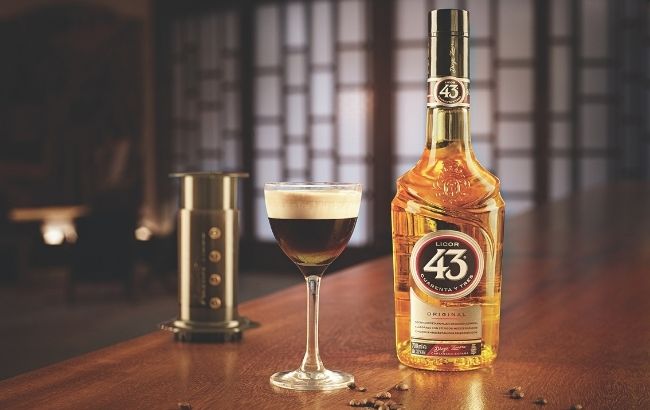The challenges facing European spirits companies
With Brexit, Covid-19 and a tariff stalemate between the EU and the US, Europe’s spirits producers are having to demonstrate resilience to weather the storm. But as Nicola Carruthers discovers, there is light at the end of the tunnel.

*This feature was originally published in the March 2021 issue of The Spirits Business. Since the publication of this piece, the landscape has continued to evolve, with the EU and US agreeing a temporary tariff suspension, among other developments
As one of the biggest spirits markets in the world, Europe boasts many leading cocktail cities and trends that continue to shape the sector, such as the movement towards lighter serves and apéritifs.
While being an attractive market for spirits producers, Europe has had its fair share of challenges in recent years – namely Brexit and trade wars. The UK’s choice to exit from the European Union after being a member for 47 years sent shockwaves through the industry, following the 2016 referendum. While a Brexit agreement was secured at the end of 2020, there remains a lack of clarity over its long‐term impact on the spirits sector. Meanwhile, the trade wars between the US and EU, the result of an aircraft dispute, has had a monumental impact on the industry. The US has been embroiled in a long‐running spat with the EU over civil aircraft subsidies. The ongoing Covid‐19 pandemic has also thrown another spanner in the works.
Emilio Restoy, CEO of Spain’s Zamora Company, called Brexit a “major disruption” for the spirits sector. “It doesn’t make it easier for anyone,” he says. “An agreement is much better than no deal. Last year there was huge uncertainty.” The Spanish firm exports Martin Miller’s gin to Europe and imports other liqueurs and spirits to the UK. Restoy notes there have been no major issues so far resulting from Brexit.
Since the agreement came into effect on 1 January 2021, firms in many industries have reported short‐term disruption, including French producer Famille Naud. Saffron Brice Rouger, UK sales manager at Famille Naud, says: “Even though we felt well prepared with all the work carried out beforehand with French customs, our exports to the UK, in the first few weeks of January, were not as straightforward as we had wished for. From this side of the Channel it feels like there maybe wasn’t enough communication from the British side on which formalities would have to be done to import after Brexit.” Rouger adds it was difficult to measure the impact of Brexit alone because of the coronavirus pandemic.
Nikulas Hannigan, global brand educator for non‐alcoholic ‘spirit’ brand Fluère, also cited the immediate impact of Brexit on importing into the UK. Hannigan says: “We are a Netherlands‐based company, and Brexit has been wreaking havoc on the ability of our UK importers to actually get Fluère into the country. It’s been sorted now so hopefully there are no more hiccups, but these are trying times all around.”
THE EFFECT OF BREXIT
For Dutch drinks firm De Kuyper, the effect of Brexit has also been minimal so far. The company shipped extra stock to the UK at the end of 2020. Mark de Witte, CEO of De Kuyper, says: “Going forward it will be important for us to see how the pound will be affected as it can influence our profitability.”
Spirits Europe’s director general, Ulrich Adam, said the new Brexit agreement provides clarity, but he noted that there are some specific labelling issues in Northern Ireland, which pose a “short‐term challenge”.
According to Spirits Europe, just under €2.7 billion (US$3.3bn) worth of spirits are shipped between the EU and the UK each year. Spirits traded between the UK and the EU are not subject to tariffs.
One opportunity arising from Brexit is a movement towards local spirits, Restoy adds. “We think the UK consumer could move a bit more towards their home product. With Martin Miller’s, we are trying to stress our British origins.” Martin Miller’s Gin is distilled in pot stills in England and mixed with Icelandic spring water.
The ongoing challenge of tariffs has also caused a huge headache for producers. The US government imposed a 25% import tariff on EU goods, including single malt Scotch and single malt Irish whiskey. Liqueurs and cordials from Germany, Italy, Spain, Ireland and the UK, and wine from Spain, Germany and the UK have also been hit by the punitive tariff, which came into force on 18 October 2019. More spirits were penalised as part of the trade war, with the Office of the US Trade Representative announcing it would adjust tariffs on certain products from the EU at the end of 2020. As part of the revision, certain Cognacs, grape brandies and wine from France and Germany have suffered a 25% duty rate since 12 January 2021. The tariffs are being added as part of a long‐running dispute between the EU and the US regarding plane manufacturers Airbus and Boeing.
The tariffs are on top of the Covid‐19 pandemic, which caused spirits exports in France to plummet by double digits. According to the Fédération des Exportateurs de Vins & Spiritueux de France, French spirits exports fell by 19.4% to €3.8bn (US$4.6bn) in 2020 and declined by 8.4% in volume to 48.5 million cases. Cognac and vodka witnessed double‐digit drops. Meanwhile, liqueurs decreased by 9.1% in value and Calvados dropped by 4.4% in value. Other wine‐based spirits fell by 25.8% in value. Armagnac, however, bucked the trend, and rose by 39.6% in value and 93.2% in volume.
Trade body the Bureau National Interprofessionnel du Cognac (BNIC) said the new tariffs affect only a part of Cognac exports to the US, but “already have important effects for medium‐size companies and products representative of our category”. Raphaël Delpech, general director of BNIC, says: “The demand for Cognac is stronger than ever in the US, with an increase of 1% in volume in 2020. Despite the pandemic, Cognac’s first market is still very dynamic.
“We are worried about what could happen in the next few weeks if French wine and spirits are not taken out of this diplomatic dispute as soon as possible. We called on the French government and the European Commission to start discussions with the new US administration, who will be free on a diplomatic level to negotiate. Our French government and Europe need to send them the right messages right away to appease tensions and start over.”

MAJOR IMPACT
For Cognac house Frapin, the tariffs will have a major impact on its entry‐level products. Bertrand Verduzier, director of international business, says: “My concern is for VSOP, all of the products sitting between US$50 and US$100 – that’s where the impact is going to be stronger. Most of our volume is made there. We need to find a way to continue to have a promotional price at US$59.99, which is becoming very difficult with the new tariffs. We also have the opportunity to work with different bottle formats.
“The question is how are we going to manage our prices, and are we going to help this by bringing in a smaller size. We can’t have different sizes for some customers. We can’t entirely absolve the tariffs, so there could be some price increases.”
The new tariffs could also cause barriers for producers looking to enter the market, Verduzier warns. “It is difficult to do in general. It’s not easy to find the right partners in the US and to have visibility. It demands a lot of marketing activity. For some people that are selling on price and in those segments, it could become very difficult to continue. I fear the tariff will not help the small players. The impact on big players will probably be much less – 90% of volume is made by very few brands. It will only bring less choice for the consumer.”
AN INDUSTRY DESTROYED
Armagnac trade body the Bureau National Interprofessionnel de l’Armagnac (BNIA) also warned that the tariff will “destroy” the industry, in particular vintage Armagnacs. Patrick Farbos, president of the BNIA, said in a press statement: “The American market is historically our first export market, along with China, with a great proportion of vintage Armagnacs sold on this market. The situation is serious for the oldest eau‐de‐vie and numerous companies in the southwest, in the Landes, Gers and Lot‐et‐Garonne who market and promote it.”
According to recent data from the Distilled Spirits Council of the US, US imports of affected liqueurs and cordials decreased by 40% in 2020.

For Licor 43 owner Zamora Company, the US tariff on Spanish liqueurs has had a “very severe effect”. Restoy says: “We are trying to understand the situation and lower stock as much as possible. We have increased prices, but our vision is that this is a short‐term situation. Sooner rather than later the situation needs to be settled. None of the products affected have anything to do with the airspace discussion.”
In its 2020 full‐year results, Aperol owner Campari Group said its Italian portfolio of aperitivos and bitters were penalised by the US import tariffs. They led to the Italian firm increasing prices to partially compensate the tariff, Campari CEO Bob Kunze‐Concewitz said in a conference call for the results. The net effect of the tariff on the firm was a decline of €7m (US$8.5m). Aperol, which represents 19% of the group’s sales, dropped by 0.1%.
Ulrich adds that an immediate suspension of all tariffs on spirits would provide an “immediate boost” for recovery from the pandemic, and directly increase jobs.
Spirits companies are hoping for a quick recovery for the on‐trade channel, which has been subject to closures and restrictions because of Covid‐19. As IWSR Drinks Market Analysis notes, markets such as Italy and Spain are reliant on the on‐trade. Verduzier adds: “The long‐term is very difficult to plan, we hope spring will bring a reopening for the on‐trade in Europe.”
MASSIVE CHALLENGES
Hannigan notes the problems for smaller brands competing for space in the on‐trade: “A massive challenge, for smaller producers especially, is going to be reintegrating into the on‐trade. Gaining listings was already a tough job at times, and decision makers in the on‐trade are going to be a lot more preoccupied by speed of service, easy sells and the bottom line; and you can’t blame them.
“This will simply make it very hard for smaller brands that don’t have the funds to effectively ‘buy’ their way into bars with promises of support. Hopefully they have managed to leverage themselves online.”
De Witte is also concerned about what the on‐trade will look like in the future. “We all fear that lots of the on‐trade will collapse,” he says. “As a company we are very focused on the on‐trade, and it remains very important. It’s where you build your brand. Covid means we shouldn’t rely on the on‐trade, we need to build much more e‐commerce.”
